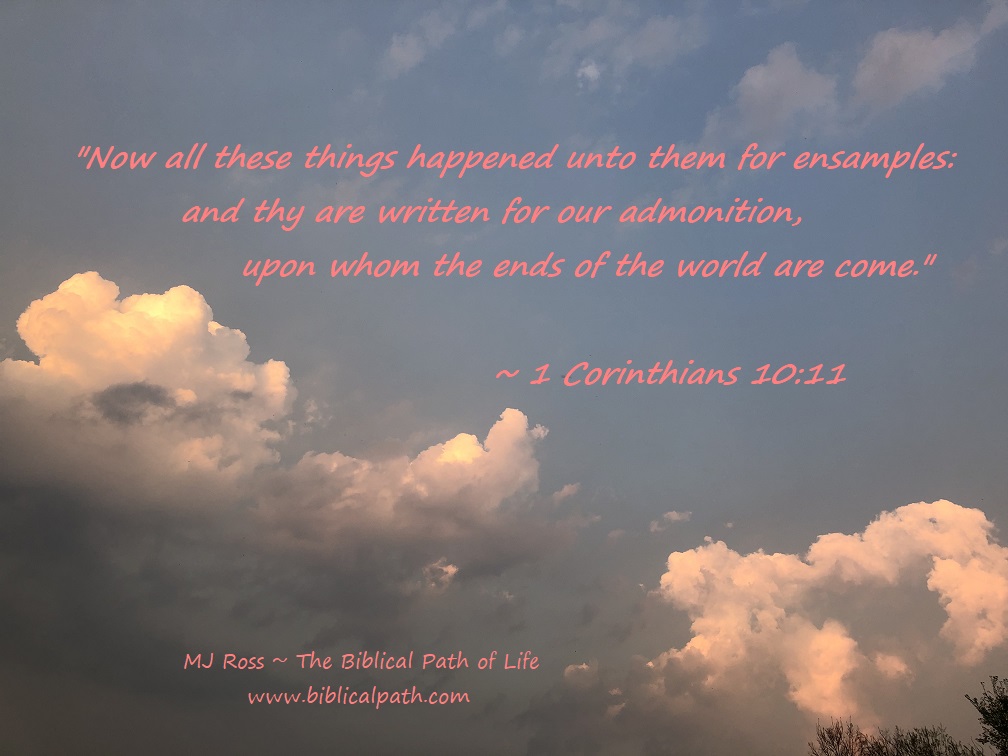
“Then they that feared the LORD spake often one to another: and the LORD hearkened, and heard it, and a book of remembrance was written before him for them that feared the LORD, and that thought upon his name.”
Malachi 3:16
God sent Malachi with a message for His people, beginning with the priests who were just practicing a religion and not serving God according to His Word. The priests, and then the people, had fallen into sin once again. Malachi addressed many of the same sins that Nehemiah dealt with in the lives of God’s people.
God had Malachi remind the Jews of the great love God had for His people. Yet, God’s people were not living as His people – for they sinned and did not even recognize how great their sin had become. Malachi’s burden was to reveal to the people just how far from God they had fallen.
One important thing God wanted the people to understand was written in the second chapter. “If ye will not hear, and if ye will not lay it to heart, to give glory unto my name, saith the LORD of hosts, I will even send a curse upon you, and I will curse your blessings: yea, I have cursed them already, because ye do not lay it to heart” (Malachi 2:2). Not only would they not hear God, they had not taken His Words to heart: “if ye will not lay it to heart”. The things that one lays to heart are the things that are the most important to one. So much so that these are the things that make one who they are (as in character, beliefs, attitudes, actions, etc.). This verse was directed to the priests in Malachi’s day. This means that they were not allowing God’s Word to enter into their hearts, making a difference in their lives. Because they had not heard or laid to heart God’s Word, they were in a sinful condition before God. The priests thought they were doing fine because they practiced a religious system, but God knew the condition of their hearts. Because of the condition of the priests, the people in like manner, were also in sin.
Some of the blatant sins of the day were listed in Malachi. In the midst of that list, see what God said, “… Return unto me, and I will return unto you, saith the LORD of hosts …” (Malachi 3:7b). God continually extended an invitation for the people to return to God, in repentance and change of heart, and God would return to His people. If they would return to God, obeying His commands, God’s people would not be able to contain the blessings He had in store for them.
During this time, there were still a few people who truly feared God. God recognized those few who rejected the sin and obeyed God’s commands. “16. Then they that feared the LORD spake often one to another: and the LORD hearkened, and heard it, and a book of remembrance was written before him for them that feared the LORD, and that thought upon his name. 17. And they shall be mine, saith the LORD of hosts, in that day when I make up my jewels; and I will spare them, as a man spareth his own son that serveth him” (Malachi 3:16-17). God not only saw them, He heard them. They are His “jewels” for they belong to Him. God knew them and wrote of them in a special book of remembrance. These people obviously loved God and sought to know Him more – for they thought upon His name. Remember that the things that one lays to heart are the things that are the most important to one. So much so that these are the things that make one who they are (as in character, beliefs, attitudes, actions, etc.). When one continually thinks on God, God will continually be in that heart and mind. That is when a change in one’s life can take place. Those that God saw that still feared Him, “spake often one to another: and the LORD hearkened, and heard it” (Malachi 3:16a). They obviously encouraged each other often, and God heard.
This is a good thing to remember today. Much encouragement comes from sharing with others who also fear and serve God. “But exhort one another daily, while it is called Today; lest any of you be hardened through the deceitfulness of sin” (Hebrews 3:13). God does not expect us to “go it alone”. We learn to not commune with evil ones, for they will corrupt our lives (“Be not deceived: evil communications corrupt good manners” 1 Corinthians 15:33). Instead, we are to fellowship with those who walk in the light (because Jesus is the Light). “5. This then is the message which we have heard of him, and declare unto you, that God is light, and in him is no darkness at all. … 7. But if we walk in the light, as he is in the light, we have fellowship one with another, and the blood of Jesus Christ his Son cleanseth us from all sin” (1 John 1:5, 7). God gives Christians with whom to fellowship and grow in Christ.
As we read in Malachi, God keeps a “book of remembrance” of those who trust in God, fear Him, think on Him, and speak often with one another. One day, God will “open the books” (see Daniel 7:10 and Revelation 20:12). What do you want God to have written about you?
Are you one who has “feared the LORD, and that thought upon his name” becoming more like Him?




